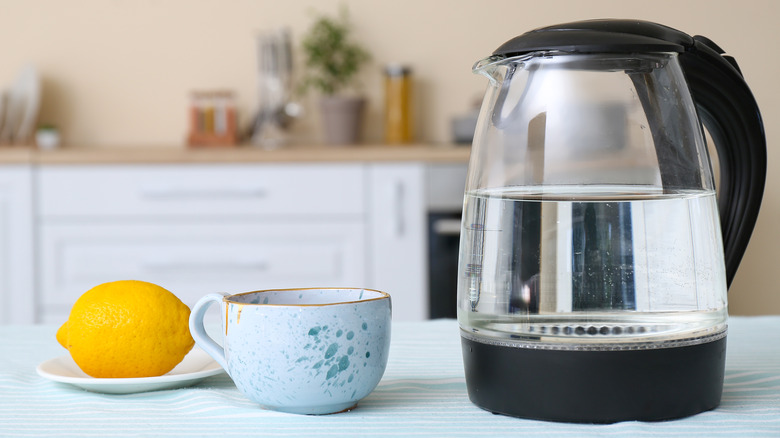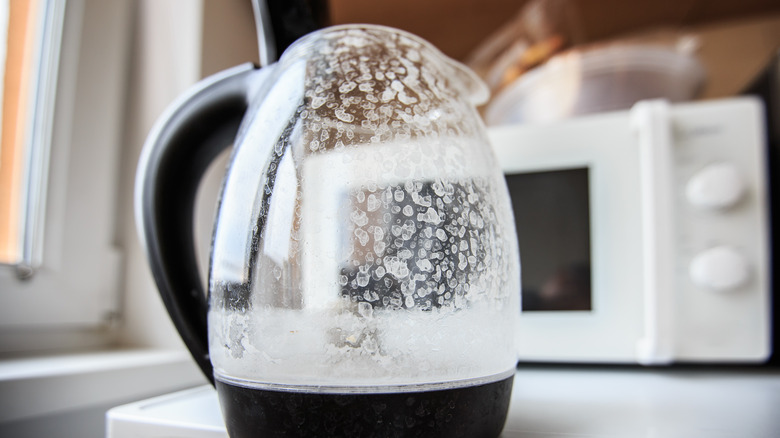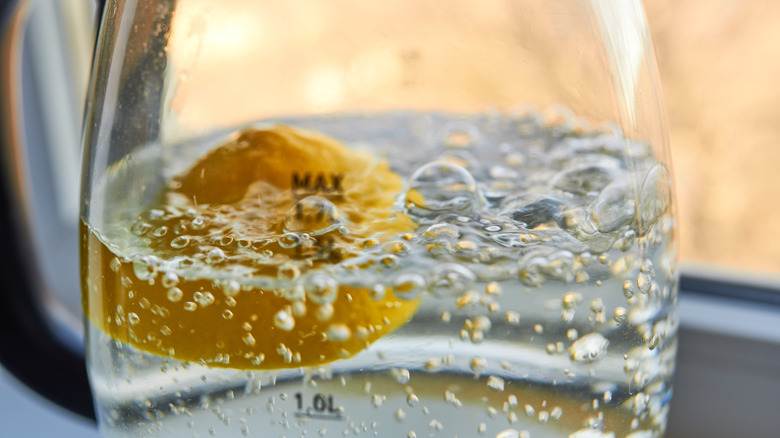Lemon Is All You Need To Descale A Kettle
Kettles have made lives easier in more ways than one can count which means, it's one kitchen gadget that deserves to be taken care of properly. Plus, it also helps that kettles are fairly low-maintenance gadgets because they're only ever exposed to clean water. But any gadget that is frequently exposed to water requires extra attention and cleaning — a process called "descaling."
Kettles do most of the heavy lifting in the hot water department but the same water can also lead to limescale deposits, causing the kettle much damage if not taken care of. Descaling helps to get rid of this limescale buildup but it's not a process that a simple soap and water rinse can take off. Rather, descaling requires a heavy-duty cleaner and luckily, there's one sitting right in your kitchen: lemon juice. All you have to do is boil some lemon juice in the kettle and the lemon's acidity will take care of the limescale, descaling the kettle in a jiffy.
Why you need to descale a kettle in the first place
Water is usually the liquid that is used to rinse and clean things so it's hard to grasp the fact that it can also be the cause of any damage. However, water also contains minerals which, when heated and left inside a kettle for long periods of time, form limescale or insoluble calcium carbonate deposits. Kettles exposed to hard water are even more susceptible to mineral deposits and limescale buildup.
Although ingesting limescale may not exactly be dangerous for your health, it can cause much harm to your kettle. For one, limescale will leave chalky bits that no one wants to see in clean drinking water. A buildup of limescale may also be the reason a kettle suddenly starts taking longer to boil the same amount of water. If not descaled regularly, this limescale buildup can eventually damage a kettle for good.
As a general rule of thumb, a kettle should be descaled every one or two months though the frequency may increase depending on the hardness of the water where you live. If you see limescale building up inside your kettle or notice that it's taking longer to boil water than it should, it may be time to add a splash of lime juice and descale it.
How to use lemon to descale a kettle
Lemon juice or citric acid is regarded highly as a natural home cleaner. The acidic liquid can remove stubborn grease from an oven, food stains from a microwave, smelly odors from wooden chopping boards or refrigerators, and unsurprisingly, limescale from kettles.
In order to descale a kettle, you should mix lemon juice into equal parts of water and boil the solution in the kettle. It doesn't matter whether the lemon juice is freshly squeezed or out of the bottle because it's the acid in the juice that will break down the limescale and rid the kettle of its scaly deposits. Let the boiled solution sit in the kettle for another 20 minutes before you give everything a good scrub and watch the limescale come away.
The only word of advice? Wash the kettle thoroughly with soap and fresh water after you've boiled lemon juice in it. You want to make sure that both the limescale and the lemon juice used to clean it are completely washed away from the kettle. You don't want the next batch of water you boil in your kettle to have any traces of the acidic juice in it, unless you want your coffees or instant ramen tasting like lemons that is!



